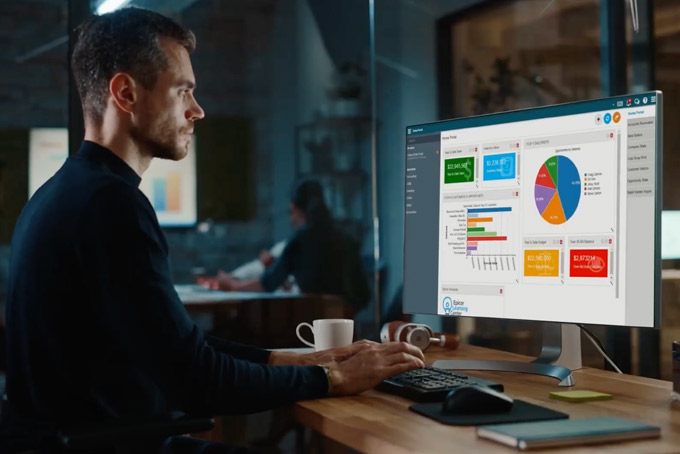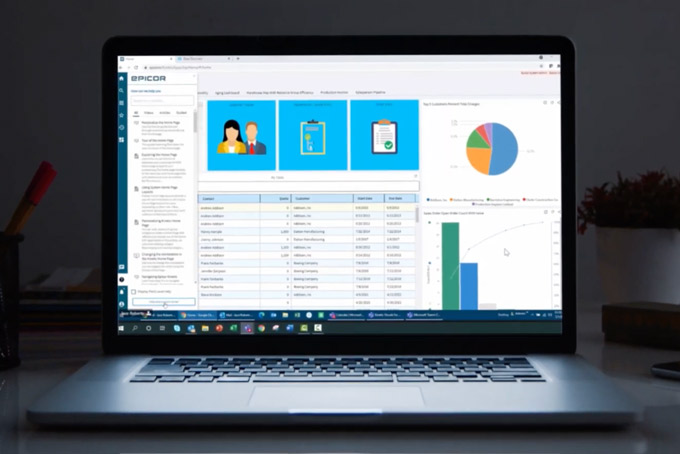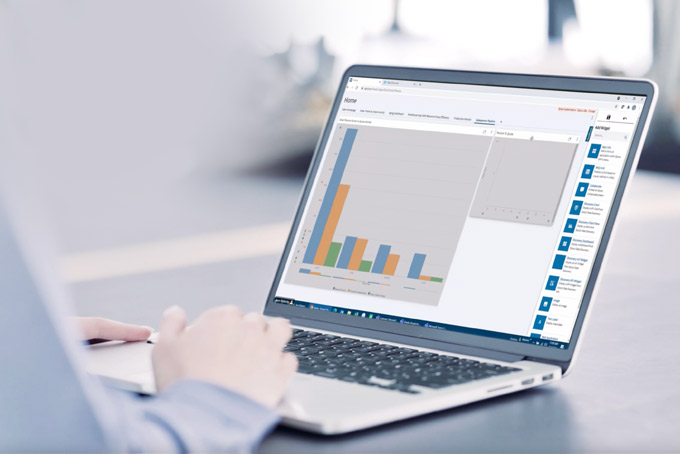When to implement an ERP System? Top 3 Signs to Look For
Do you know when to implement a new ERP system? There’s an old saying: “If it ain’t broke, don’t fix it.” Now, that works wonders when it comes to your trusty sidekick that you call a car, but when it comes to ERP software, even if it ain’t broke, it can become inefficient and obsolete after a few years.
This is especially true for the manufacturing and distribution industries. ERP platforms are constantly changing and require a generous amount of time dedicated to upgrades and fixing issues. While most of these are done through automation, it doesn’t mean that the core infrastructure of your ERP will always stay modern.
Given the speed at which software has been advancing over the past few years, your current ERP will degrade over time. As a competitive manufacturing company, you definitely do not want to be left in the dust.
So, the big questions we’re left with are: when do you implement a new ERP? And most importantly, why? Let’s find out.

Signs your manufacturing ERP
needs an upgrade

In the beginning, ERPs for manufacturing were designed to manage core processes that lifted a huge weight off a company’s shoulders. Inventory, sales orders, suppliers, and production were all crucial business functions that were easily automated within your ERP system.
Over the years, you’ve strived to keep that system running with ERP upgrades, such as new functionalities, better reports, and industry-specific integrations.
However, nowadays, the evolution of ERP technology has led this once simple system to encompass now everything from manufacturing to finance to human resources to even marketing. While your current ERP platform is probably still working, it’s slowly becoming outdated. The advantages that were once praised have become roadblocks and are limiting your business from true growth.
For example, if you’re currently experiencing:
- Inefficient business processes
- Lack of comprehensive data
- Disorganized integrations
It’s a sign you need to either upgrade or switch to a newer system. Once ERP software becomes difficult to use and the functionalities that used to bring a stress-free environment are now making life for your team extra complicated, it’s time to let go.
An ERP is supposed to effortlessly control your backend, not leave you picking up its broken pieces. Don’t let budget or attachment keep you from the development your company can easily achieve with a modern system. You want assets, not liabilities.

The risks of an outdated
ERP system

Having an outdated ERP system can be detrimental to your organization. As a manufacturing company, since so much relies on advanced technology in order to stay relevant in the game of economics and profitability, it’s crucial to update your ERP.
Risks of an outdated ERP system can impact your core functionalities in the worst possible way, and lead to:
- Decreased productivity and profitability
- Inconsistent information and no data visibility
- Loss of centralization
- Slow reporting and system performance
- High cost and low economic gains
- Substantial security concerns
With digital transformation being the buzzword for businesses today, the danger of being left behind due to bad Enterprise Resource Planning systems is a real issue.
New technologies are being developed and have become more accessible and affordable. Without a proper core system to house these new integrations and ERP updates, you won’t be able to take advantage of them.
Why implement a new
manufacturing ERP system?
On average, a company should buy a new system every 10-20 years and make sure to continue upgrading that system every 3-5 years. Furthermore, a study by TechReport showed that 43% of market leaders express a need for new and improved technologies in their ERP systems to facilitate faster operation and upgrades. If you’re within that time frame and are experiencing a faulty infrastructure, it’s time to either upgrade your ERP or go for a brand new system.
As mentioned above, not making the necessary changes to your system is a huge risk to your organization. And considering how much the manufacturing industry relies on automation, to revert back to manual processes would be a nightmare.
Going back to the concept of digital transformation, companies in the manufacturing sector must invest in advanced technology and strong business processes. This not only sets companies above the rest but ensures that clients and employees are valued.

It also establishes good practices within your organization. The risks that were listed above can easily be eliminated with a new ERP implementation plan. Let’s take a look at how an upgrade or new ERP can transform your company for the better.
Security
Customer satisfaction
Maintenance
Increased productivity
Competitive advantage
With new additions and advancements to ERP systems that include cloud technologies, robotics, 3D printing, big data, and much more, the question of “why” becomes obvious, and companies choose to ask “how” instead.
Manufacturing companies can be hesitant to adopt a new ERP as the shift to automation often implies that employees will lose their jobs. It’s important to note that while the workforce is changing and technology has replaced certain jobs, in manufacturing, many careers rely on the human aspect. Certain ERPs will only facilitate these jobs, not render them obsolete. Humans are and continue to be a top priority.

When to Implement a New ERP system and What to Look for in an
ERP for manufacturing

When you need to upgrade your ERP, we highly recommend a software that is Cloud-based instead of on a server. It’s easier to upgrade over time and is one manufacturers should consider as it will become a long-term investment.
Modern, cloud-based ERPs can be accessed anywhere and have many benefits including:
- Days sales outstanding (DSO)
- Traceable Delivery
- Schedule compliance
- Accurate financial reports
- Accurate inventory data
An ERP system is the frame that keeps the house stable and strong. For your organization, having a solid system in place ensures your future growth. Once you have a solid frame, building onto it becomes easier.
For more information on how and when to implement a new ERP system, contact our sales team today.
Contact Our Experts
Our certified experts will be happy to discuss your objectives, answer your questions and advise you in the execution of your technology project. We favor a consultative approach to ensure that you have all the information you need to make the best decisions for your needs.
Laval (Quebec), H7T 2H6

